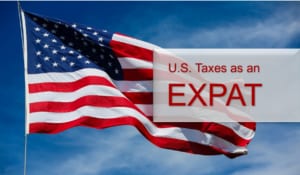The U.S. Customs and Border Protection Agency (“CBP”) has not announced any special relief to a lawful permanent resident (“LPR’) who has remained outside the United States for more than one year because of COVID-19 travel and movement restrictions. Currently, a LPR who was remained outside the United States irrespective of his or her reason for doing so are presumed to have abandoned immigrant status and an interviewing CBP officer may determine that he or she is not admissible for admission into the United States upon arrival at the Port of Entry (“POE.”). A LPR who has remained outside the United States for more than one year may either seek relief by applying for a SB-1 Returning Resident Visa at a U.S. Embassy or Consulate or may travel to the United States and request entry provided his or her Form I-551 (“green card”) has not expired. An LPR who chooses the latter option may have an increased risk of being sent to into secondary inspection upon arrival at an air, land, or sea Port of Entry.
An LPR who has been sent into secondary inspection by CBP does not have any privacy rights that would protect him or her from CBP accessing his or her mobile phone, computer, tablet or other electronic device. A CBP officer may search his or her electronic devices including accessing emails, SMS, and screen social media activity during the inspection process. If CBP determines that the arriving LPR is not a “returning resident” because he or she has been outside the United States for more than one year, he or she may be deemed to be an “arriving alien” and may be charged as removable from the United States. Upon making such a charge, he or she has the right to request for temporary admission and to be scheduled for a hearing before an immigration judge.
A CBP officer may attempt to convince an LPR to sign a Form I-407 because of prolonged absence from the United States of more than one year. Upon signing a I-407, CBP will also attempt to have him or her returned to his or her original destination. Before signing a I-407, an LPR should note the following:
- An LPR cannot lose his or her status solely because of time spent abroad;
- An LPR remains an LPR unless the government proves abandonment by clear, unequivocal and convincing evidence and a final order of removal is issued by an immigration judge;
- Form I-407 must be signed voluntarily. An LPR may refuse to sign an I-407 without any negative consequences;
- An LPR cannot be forced to return to his or her original destination.
To avoid future travel delays caused by the COVID-19 pandemic, an LPR who is currently residing in Asia should consult with one of our U.S. immigration attorney in Ho Chi Minh City, Manila and Taipei who can advise how he or she can safely travel internationally and maintain his or her LPR status.
ENTERLINE & PARTNERS CONSULTING
Ho Chi Minh City, Vietnam Office
Suite 601, 6th Floor, Saigon Tower
29 Le Duan Street
Ben Nghe Ward, District 1
Ho Chi Minh City, Vietnam
Tel: +84 933 301 488
Email: info@enterlinepartners.com
Facebook: Enterline & Partners – Dịch vụ Thị thực và Định cư Hoa Kỳ
Website: http://enterlinepartners.com
Manila, Philippines Office
Unit 2507 Cityland 10 Tower 1
156 H.V. Dela Costa Street
Makati City, Philippines 1209
Tel: +632 5310 1491
Email: info@enterlinepartners.com
Facebook: Enterline and Partners Philippines
Website: https://enterlinepartners.com/language/en/welcome/
Copyright 2020. This article is for information purposes only and does not constitute legal advice. This article may be changed with or without notice. The opinions expressed in this article are those of Enterline and Partners only.








